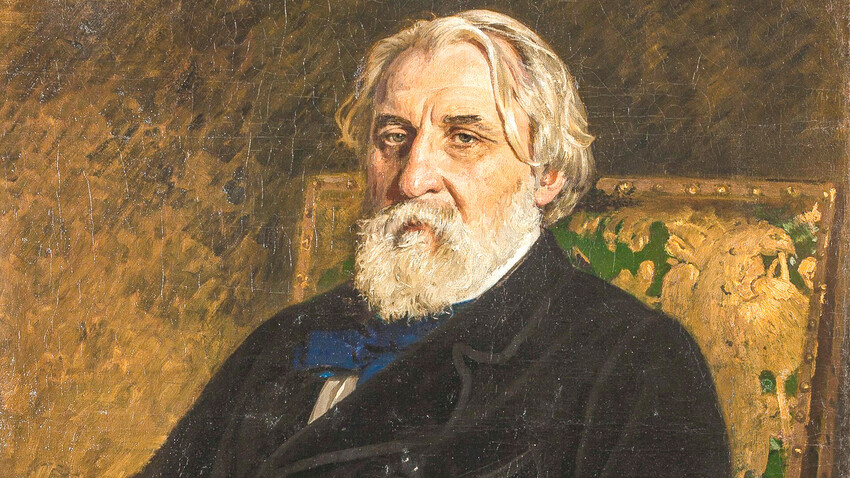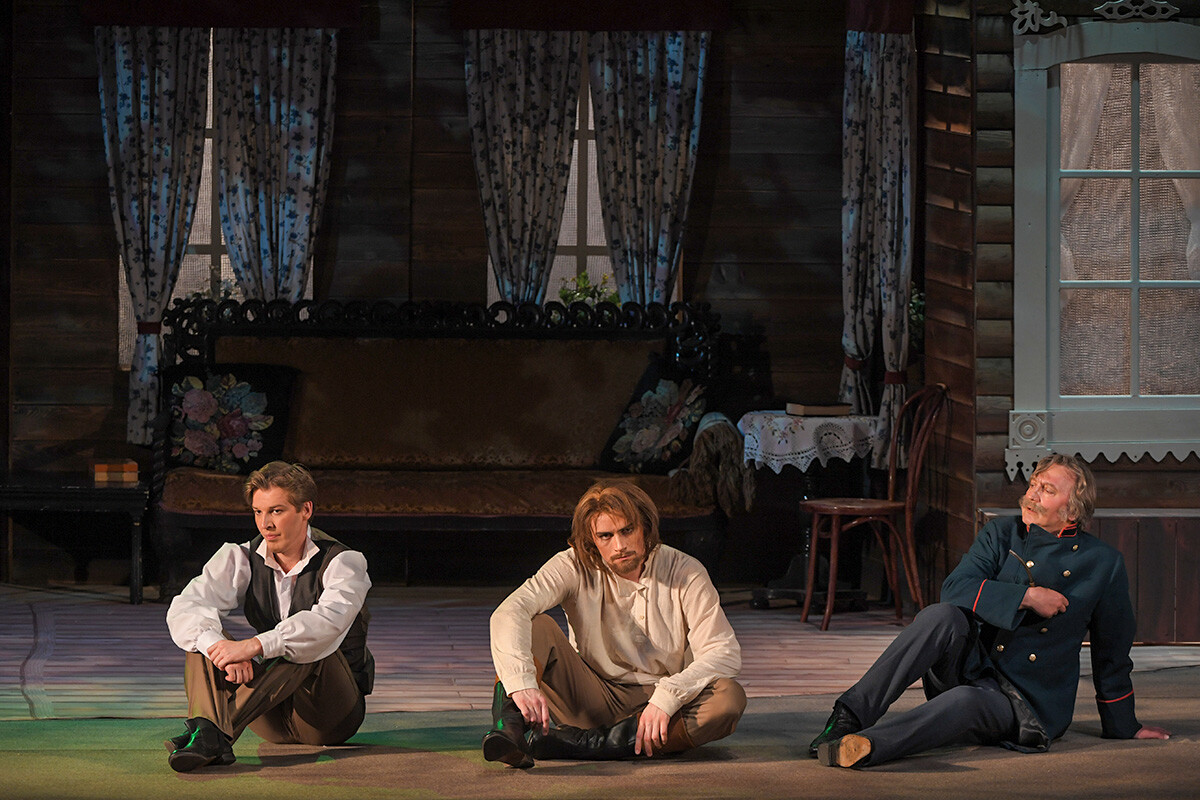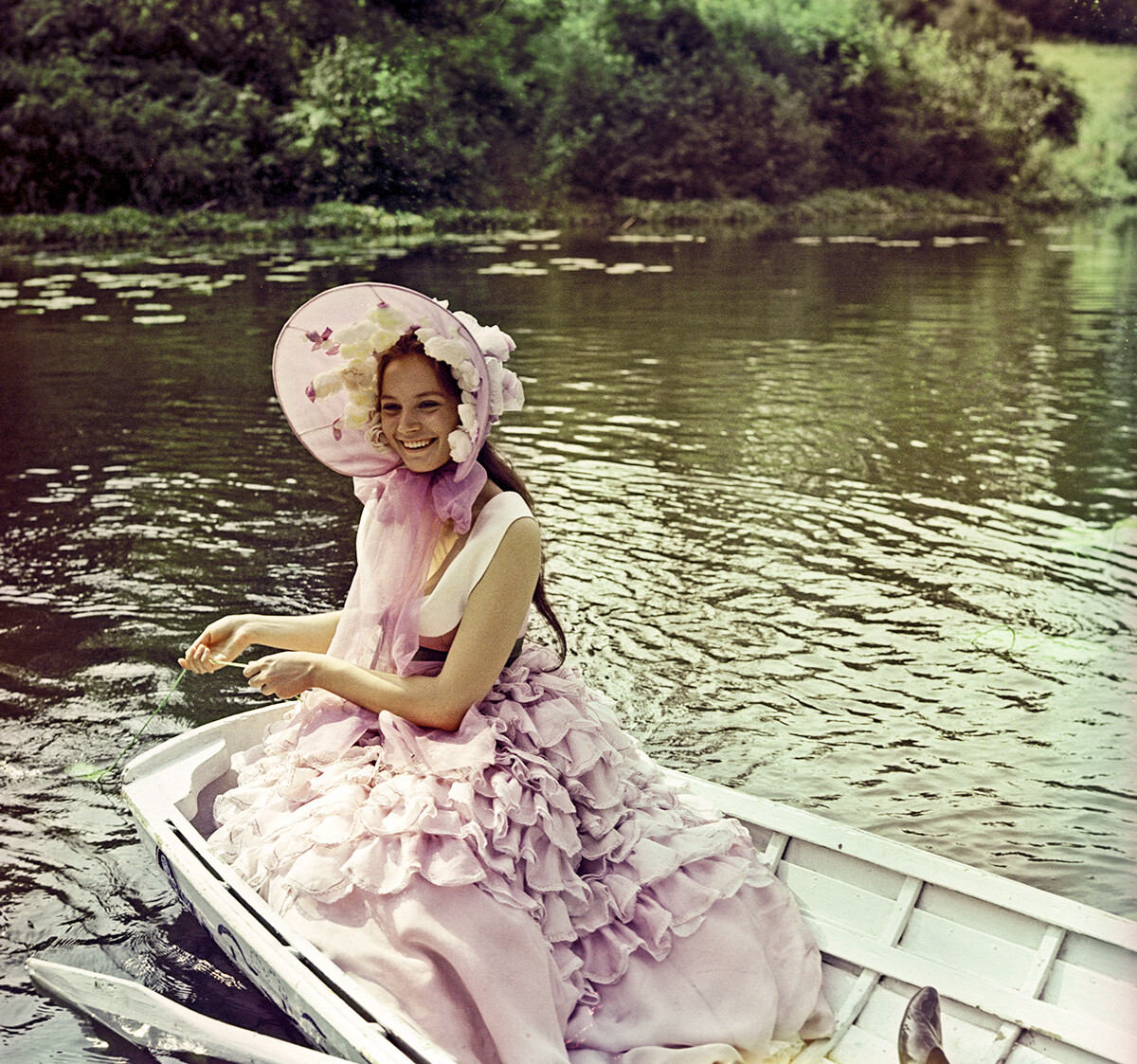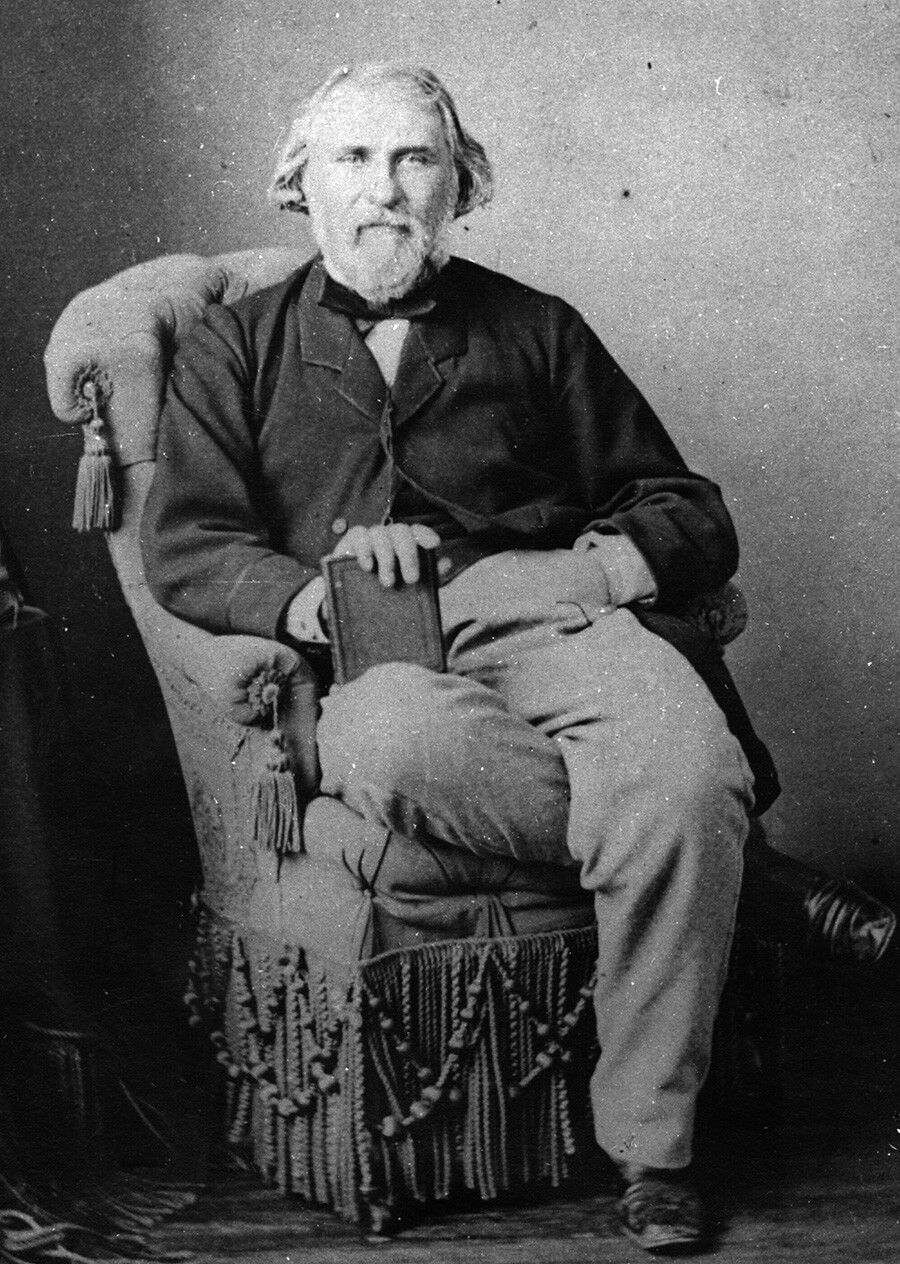
Ilya Repin. Portrait of Ivan Turgenev, 1879
Tretyakov GalleryHe was born in 1818 and, for some reason, was a little lost in the shadow of Tolstoy’s and Dostoyevsky’s glory. Though, in Russia, he is considered of the same importance and his writings are also part of the school curriculum.
Here's three things you should know about him.

A scene from the play “Fathers and Children” at the Gorky Moscow Art Theater
Vladimir Vyatkin/SputnikTurgenev was most famous for his realistic novels. His most famous one is 'Fathers and Sons'. We recently published a short summary and wrote more about it here.
But, what you need to know is that Turgenev was the first author to focus on the problem of two generations who don’t understand each other and don’t even try. And, because of his work, more often than not, this problem is now referred to as ‘the problem of Fathers and Sons’.
Russians admit that this problem is eternal and that despite more than a century passing, it’s still very relevant.

A still from the movie 'A Nest of Gentle Folk' (1969), directed by Andrei Konchalovsky
V. Uvarov/SputnikIn many of Turgenev’s novels a woman plays the central role: Natalya in 'Rudin', Asya in 'Asya', Yelizaveta in 'A Nest of Gentlefolk', Yelena in 'On the Eve' and others.
Usually, they are young ladies grown up in provincial countryside estates reading books. They are a little dreamy, however, very well educated, modest and intelligent, having good manners. They seem to be fragile, but, eventually, it turns out they have much stronger characters than men. They are frank and open and men usually can't stand those traits and flee.

Ivan Turgenev
Hulton Archive/Getty ImagesBeing lost in translation himself, Turgenev did a lot to popularize Russian literature in the West. He stayed for long periods of time in Europe, mostly in Germany, France and Italy. And there, while meeting literary circles, he talked about Russian literature and made sure that Dickens, Hugo, Maupassant, Flaubert and others got to know Pushkin, Tolstoy and Dostoyevsky. Turgenev himself translated many works of Russian writers into French and German. And, vice versa, he translated Western writers' works into Russian.
Dear readers,
Our website and social media accounts are under threat of being restricted or banned, due to the current circumstances. So, to keep up with our latest content, simply do the following:
If using any of Russia Beyond's content, partly or in full, always provide an active hyperlink to the original material.
Subscribe
to our newsletter!
Get the week's best stories straight to your inbox